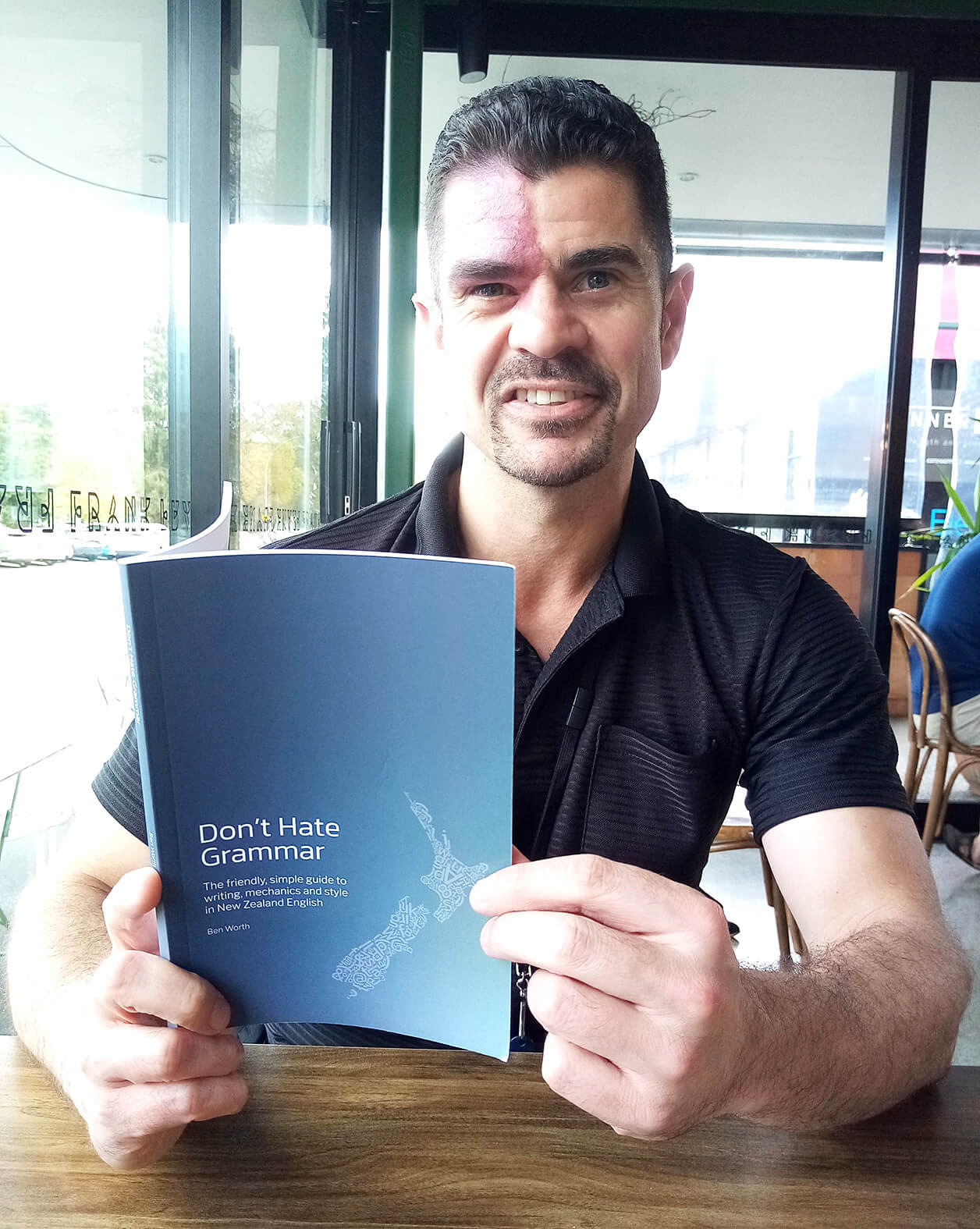
The more time Ben Worth put into teaching university students, the more he appreciated the value of good grammar.
A few years have passed since then, and Ben is now a communications advisor based in Hamilton. He is also the author of a book gaining popularity in universities, schools and workplaces, entitled ‘Don’t Hate Grammar’. It’s a portable guide that presents the nuts and bolts of correct grammar in a simpler way than many others of its ilk.
The book is equally a labour of love that has come at a time when reading levels of New Zealand children are said to be at their lowest on record.
That concerns Ben, but his primary trigger was to ease the path to employment for young people. A former student he bumped into years later said she still carried with her the old notes he had made for the class on the correct use of grammar. He also received feedback from employers who found jobseekers were increasingly scuppering their chances because of poorly written applications.
“There is a requirement to write stuff down in a lot of the jobs around today. People are getting caught out and limiting their opportunities,” he said. “Like it or not, literacy is vital; you can’t even get a driving licence without it. The reality is that the better employment future you want, the more pieces of paper you will have to produce, and you will be judged on those.”
Ben reckons he was one of the last babies born in the old Taylor St maternity home. He went through his school years in Cambridge and then did a degree in communications, starting at AUT and finishing at Waikato University with his honours and masters in public relations. It was then he began tutoring, then lecturing, and when he wrote a business bridging course.
All the while, his concern grew about the impact of bad grammar. “Lecturers mark an assignment or examination based only on what has been written on the paper they are reading. That piece of work is the evidence they need to determine if that student has understood what was taught and can impart that knowledge clearly. Knowing the rules around good grammar can make a significant difference to the result.”
Ben wrote down the important rules he wanted his students to follow, and it is an expanded version of that – most of it done during lockdown – that he has crafted into the book alongside a host of examples.
He believes the mechanics of good grammar should be better taught in New Zealand and bemoans the fact that you can pass NCEA without really knowing much about good writing.
“Time and time again I have seen how knowing this stuff increases a person’s confidence and puts them in a better position for advancement. Good grammar explained well isn’t really that difficult,” Ben said, “yet it can have such a big impact on your life.”
”









